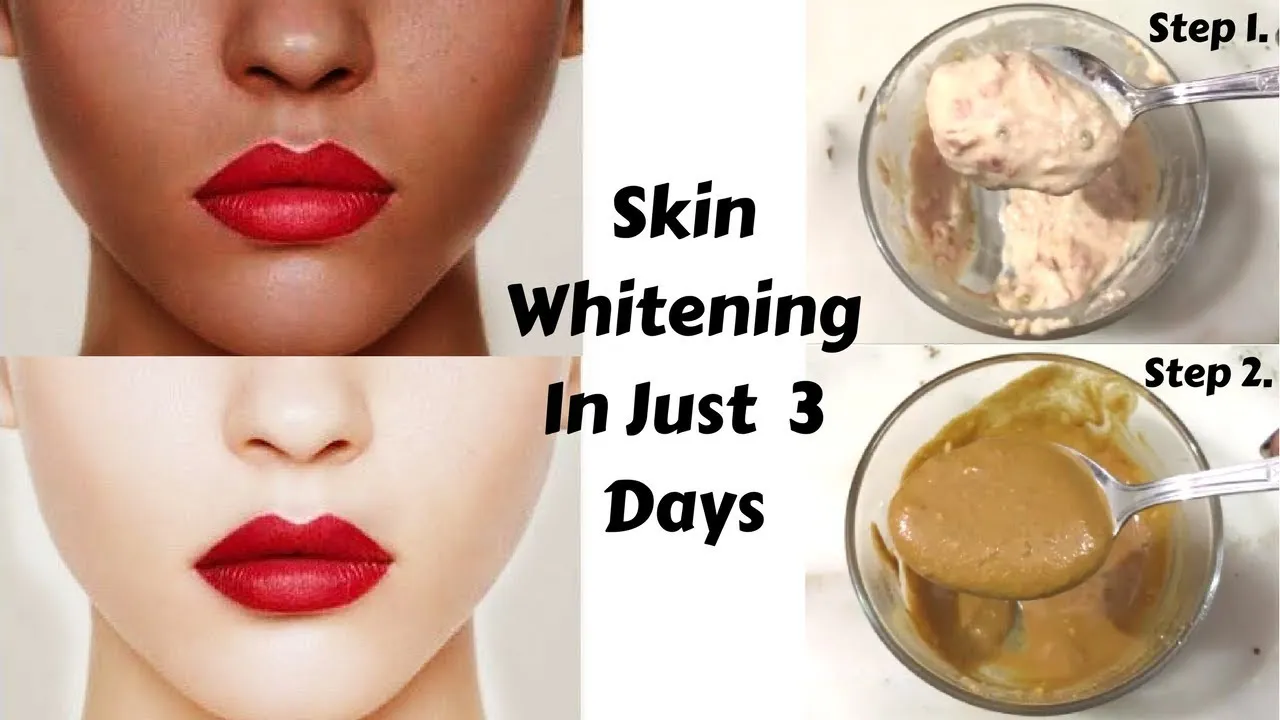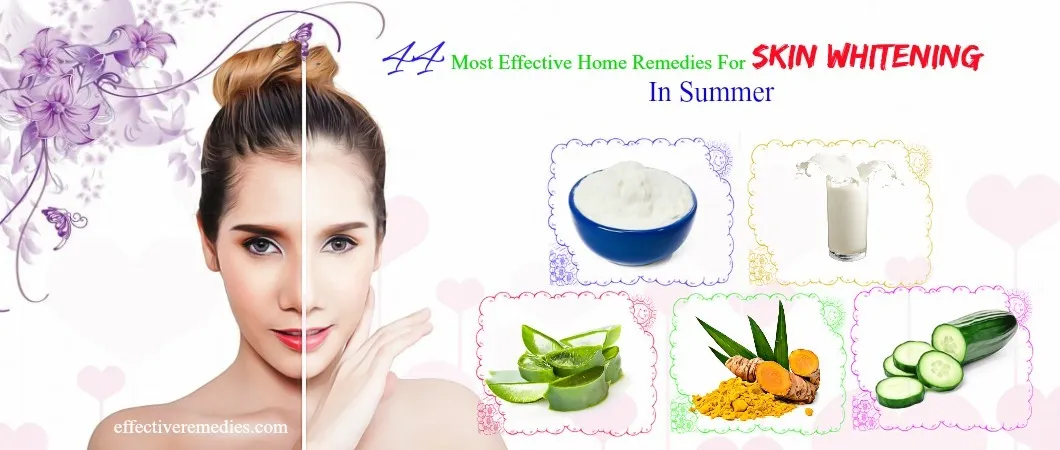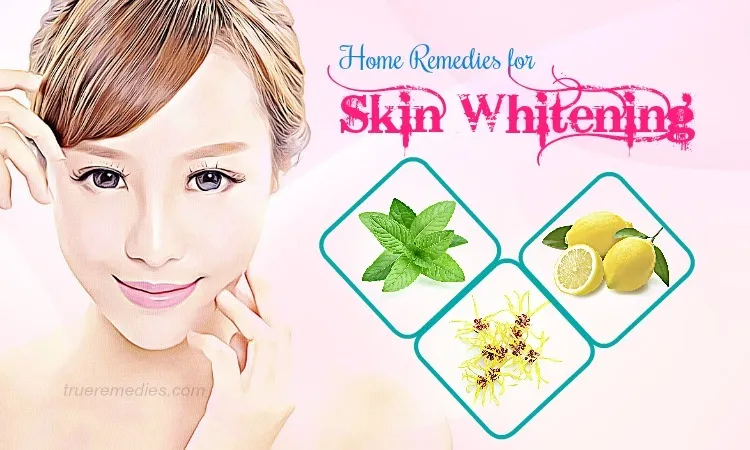Understanding Skin Whitening at Home
Embarking on a journey to achieve brighter, more even-toned skin from the comfort of your home is a popular and rewarding endeavor. Understanding the principles behind skin whitening and the factors that contribute to uneven skin tone is the first step toward success. Home remedies offer a gentle, natural approach to skin lightening, providing a safe alternative to harsh chemical treatments. By incorporating these remedies into your skincare routine, you can gradually diminish the appearance of dark spots, hyperpigmentation, and other blemishes, revealing a radiant and healthy complexion. Remember that consistency and patience are key, as natural methods typically yield results over time. A holistic approach that includes a healthy lifestyle, proper sun protection, and mindful product selection will maximize the effectiveness of your skin-whitening efforts. Begin with a clear understanding of your skin type and the specific issues you wish to address; this will allow you to tailor your regimen to your unique needs.
What Causes Uneven Skin Tone
Uneven skin tone is a common concern, often resulting from various factors that affect melanin production, the pigment responsible for skin color. Identifying the underlying causes is essential for choosing the appropriate home remedies and skincare strategies. This knowledge empowers you to address the root issues and achieve long-lasting results, making the journey to a brighter complexion more effective and sustainable. Understanding these triggers will not only help you in selecting the right home whitening skin remedies, but also in adopting a proactive approach to protect and nourish your skin, leading to a more even and luminous appearance.
Sun Damage

Excessive sun exposure is one of the primary culprits behind uneven skin tone. UV radiation stimulates melanin production, leading to dark spots, freckles, and an overall darkening of the skin. Prolonged sun exposure without adequate protection can cause premature aging and exacerbate existing pigmentation issues. To combat sun damage, it is imperative to apply a broad-spectrum sunscreen with a high SPF daily, even on cloudy days. Additionally, seek shade during peak sun hours and wear protective clothing, such as hats and long sleeves, to minimize sun exposure. This is the most important step to ensure your remedies will work.
Hyperpigmentation
Hyperpigmentation, characterized by dark patches or spots, can arise from various causes, including acne scars, hormonal changes (melasma), and inflammation. The overproduction of melanin in specific areas leads to an uneven distribution of pigment. Home remedies, such as lemon juice and turmeric, can help lighten these areas by inhibiting melanin production and promoting cell turnover. However, it’s crucial to address the underlying cause of hyperpigmentation, whether it’s acne, hormonal imbalances, or other factors. Consider consulting with a dermatologist for a personalized treatment plan if the condition persists or worsens.
Inflammation
Inflammation, whether from acne, eczema, or other skin conditions, can trigger increased melanin production, resulting in post-inflammatory hyperpigmentation (PIH). The body’s natural response to inflammation can lead to dark spots and uneven skin tone. To manage inflammation, it’s important to identify and address the root cause. Use gentle, non-irritating skincare products and avoid harsh treatments that could worsen inflammation. Home remedies like aloe vera and yogurt can help soothe inflamed skin and reduce the appearance of PIH. A consistent and gentle skincare routine, combined with anti-inflammatory ingredients, can help calm the skin and prevent further discoloration.
The Role of Natural Remedies

Natural remedies offer a gentle and often safer approach to skin whitening compared to harsh chemical treatments. Many natural ingredients possess properties that can inhibit melanin production, promote cell turnover, and lighten dark spots. When incorporated into your skincare routine, these remedies can gradually improve skin tone and texture. They also tend to be more accessible and affordable. While results may take time, the use of natural ingredients reduces the risk of side effects and allows you to customize your skincare routine to your specific needs. The key is to choose ingredients that are suited for your skin type and to use them consistently. Always perform a patch test before applying any new remedy to your face to check for potential allergic reactions.
Home Remedy 1 Lemon Juice for Whitening Skin
Lemon juice is a popular home remedy for skin whitening due to its high citric acid content, a natural bleaching agent. Citric acid helps exfoliate the skin, lighten dark spots, and promote cell turnover, leading to a brighter complexion. Lemon juice also contains Vitamin C, which is an antioxidant that can protect the skin from damage. It is very accessible and affordable. You can get good results with consistency and proper use. However, it is important to use lemon juice with caution, as its acidity can cause irritation or sensitivity if not used correctly.
How to use Lemon Juice
To use lemon juice for skin whitening, start by diluting fresh lemon juice with water. Apply the diluted mixture to the affected areas using a cotton ball. Leave it on for 15-20 minutes before rinsing thoroughly with water. For sensitive skin, dilute the lemon juice even further. You can also mix lemon juice with other ingredients like honey or yogurt to reduce irritation and enhance the whitening effects. Repeat this process a few times a week, gradually increasing frequency as tolerated. Always apply sunscreen after using lemon juice, as it can increase your skin’s sensitivity to the sun.
Precautions

Before using lemon juice, it is important to perform a patch test to check for any adverse reactions. Apply a small amount of diluted lemon juice to a small area of your skin and wait 24 hours. If you experience redness, irritation, or itching, discontinue use. Avoid using lemon juice on broken or irritated skin. Due to its acidity, lemon juice can cause photosensitivity, making your skin more susceptible to sun damage. Always apply sunscreen with a high SPF before going outside. If you experience any adverse effects, stop using the remedy immediately and consult a dermatologist.
Home Remedy 2 Yogurt and Honey for Whitening Skin
Yogurt and honey offer a gentle and effective approach to skin whitening, combining the benefits of lactic acid in yogurt with the moisturizing and antioxidant properties of honey. Yogurt contains lactic acid, a natural alpha-hydroxy acid (AHA) that exfoliates the skin and promotes cell turnover, which can help lighten dark spots and even out skin tone. Honey, on the other hand, is a natural humectant that hydrates the skin, reduces inflammation, and protects against free radical damage. When combined, yogurt and honey provide a soothing and brightening treatment that is suitable for many skin types.
How to use Yogurt and Honey
To use this remedy, mix plain yogurt with raw honey to create a paste. Apply the mixture to your face or the areas you wish to treat, and leave it on for 15-20 minutes. Rinse thoroughly with lukewarm water. You can use this mask 1-2 times per week. For added benefits, consider adding a few drops of lemon juice or a pinch of turmeric to the mixture, but always perform a patch test first. This mask is gentle and can be used regularly to help brighten and hydrate your skin. For best results, use fresh, high-quality ingredients, and adjust the frequency based on your skin’s response.
Benefits of Yogurt and Honey

Yogurt and honey offer several benefits for skin whitening and overall skin health. Lactic acid in yogurt gently exfoliates the skin, revealing a brighter complexion and reducing the appearance of dark spots and uneven skin tone. Honey’s moisturizing properties keep the skin hydrated and help reduce inflammation. Honey’s antioxidant properties combat free radical damage and protect the skin from environmental stressors. Together, yogurt and honey create a synergistic effect, providing both exfoliation and hydration, leading to a more radiant and healthy-looking skin. The combined benefits of these ingredients make this remedy a versatile and effective option for many seeking a natural approach to skin whitening.
Home Remedy 3 Turmeric for Whitening Skin
Turmeric, a spice renowned for its anti-inflammatory and antioxidant properties, is a powerful home remedy for skin whitening. Curcumin, the active compound in turmeric, inhibits melanin production, which helps to reduce dark spots and brighten the skin. Turmeric also has antiseptic properties, making it beneficial for treating acne and other skin conditions. When used consistently, turmeric can improve skin tone and texture, leading to a healthier and more radiant complexion. Turmeric can be a great option for anyone looking for home whitening skin remedies.
How to use Turmeric
To use turmeric for skin whitening, mix turmeric powder with other ingredients to create a paste. Common combinations include turmeric with yogurt, honey, or lemon juice. Apply the paste to your face, or the areas you want to treat, and let it sit for 15-20 minutes. Rinse thoroughly with water. The yellow color of turmeric can stain the skin, so be sure to rinse well and avoid using too much. This mask can be applied 1-2 times per week. For best results, use high-quality turmeric powder and adjust the recipe based on your skin type and sensitivity. Be mindful of potential staining and always perform a patch test first.
Turmeric Benefits

Turmeric offers several benefits for skin whitening and overall skin health. Its anti-inflammatory properties help to reduce redness and irritation, making it beneficial for acne-prone skin. Curcumin’s antioxidant effects protect the skin from free radical damage, helping to prevent premature aging and promote a healthy glow. The ability of turmeric to inhibit melanin production helps to lighten dark spots and uneven skin tone. Consistent use of turmeric can improve skin texture, leaving it smoother and more radiant. The combined benefits of turmeric make it a popular and effective ingredient for those seeking a natural approach to skin whitening and overall skincare.
Home Remedy 4 Aloe Vera for Whitening Skin
Aloe vera, known for its soothing and healing properties, is an excellent home remedy for skin whitening. It contains compounds that can inhibit melanin production, helping to lighten dark spots and even out skin tone. Aloe vera also has anti-inflammatory properties that can reduce redness and irritation. Moreover, it hydrates the skin and promotes cell turnover, leading to a brighter and healthier complexion. Aloe vera is a gentle and effective option for those seeking home whitening skin remedies, particularly for sensitive skin types. It can be easily incorporated into your routine, and it provides multiple benefits beyond just skin whitening.
How to use Aloe Vera
To use aloe vera for skin whitening, extract fresh aloe vera gel from an aloe vera leaf. Apply the gel directly to your face or the affected areas. Allow it to sit for 20-30 minutes before rinsing with water. Aloe vera can also be mixed with other ingredients like lemon juice, honey, or turmeric to enhance its whitening effects. Use this remedy daily or a few times a week, depending on your skin’s response. For best results, use fresh aloe vera gel. Be sure to perform a patch test before applying aloe vera to your entire face, especially if you have sensitive skin. Aloe vera is versatile and well suited for home whitening skin remedies.
Benefits of Aloe Vera

Aloe vera provides several benefits for skin whitening and overall skin health. Its ability to inhibit melanin production helps to lighten dark spots and even out skin tone. The anti-inflammatory properties of aloe vera can reduce redness and soothe irritated skin. Aloe vera’s hydrating qualities keep the skin moisturized and promote cell turnover, leading to a more radiant complexion. It also provides a soothing and cooling effect. Aloe vera is a gentle and versatile ingredient, making it suitable for most skin types. The combination of these benefits makes aloe vera a valuable addition to any skincare routine for skin whitening and overall health.
Other Effective Skin Whitening Tips
In addition to using home remedies, other practices can enhance the skin whitening process and contribute to overall skin health. These tips work in conjunction with home remedies to create an environment in which your skin can achieve its best potential. They are as important as the remedies themselves, and should not be ignored. Remember, consistency and patience are key when it comes to any skincare routine, especially when working toward skin whitening. A combination of these methods creates an easy to follow plan for achieving a brighter, more even skin tone.
Exfoliation
Regular exfoliation removes dead skin cells, revealing a brighter complexion and improving the absorption of skin-whitening remedies. You can use gentle physical exfoliants, such as sugar scrubs, or chemical exfoliants, like those containing AHAs or BHAs. Exfoliating 1-3 times per week is typically sufficient, but adjust based on your skin type. Exfoliation can also help minimize the appearance of dark spots and hyperpigmentation, allowing your skin to look its best. Be careful not to over-exfoliate, as this can lead to irritation and sensitivity. When choosing a scrub, pick one with fine grains.
Hydration

Keeping your skin hydrated is crucial for maintaining a healthy complexion. Hydrated skin appears more plump and radiant, and it also allows skin-whitening remedies to work more effectively. Drink plenty of water, and use a moisturizer suitable for your skin type. Applying a moisturizer after cleansing helps to lock in moisture. For best results, choose products that are gentle and free of harsh chemicals. Proper hydration will not only make your skin look better but also improve its overall health and function. It is an essential step in home whitening skin remedies.
Sun Protection
Protecting your skin from sun damage is essential for preventing further darkening and maintaining a brighter complexion. Apply a broad-spectrum sunscreen with an SPF of 30 or higher daily, even on cloudy days. Reapply sunscreen every two hours, especially if you’re spending time outdoors. Seeking shade and wearing protective clothing, such as hats and long sleeves, can also help reduce sun exposure. Consistent sun protection is critical to the effectiveness of your skin whitening efforts and is the single most important factor in preventing uneven skin tone. This will protect your skin while using home whitening skin remedies.
Choosing the Right Remedies
Choosing the right home whitening skin remedies depends on your skin type and individual needs. Consider your skin’s sensitivity, any existing skin conditions, and the specific issues you want to address. Start with gentler remedies and gradually introduce stronger ones as needed. Always perform a patch test before applying a new remedy to your entire face. Be patient, as results may take time. If you have any doubts or concerns, consult with a dermatologist. Combining the right remedies with other effective skincare practices, such as exfoliation, hydration, and sun protection, will maximize your results. This approach is both personalized and effective.
